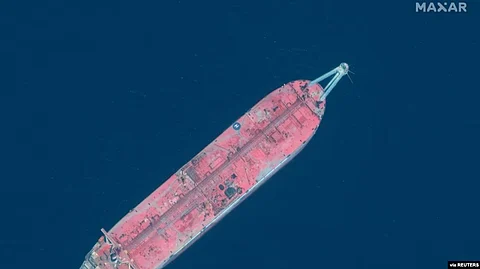
- Home
- NewsGram USA
- India
- न्यूजग्राम
- World
- Politics
- Entertainment
- Culture
- Lifestyle
- Economy
- Sports
- Sp. Coverage
- Misc.
- NewsGram Exclusive
- Jobs / Internships

The United States has designated two individuals and five entities that profit through money laundering and importing petroleum products into territory controlled by Ansarallah, commonly known as the Houthis. The Iran-backed Houthis gain hundreds of millions of dollars annually by working with Yemeni businessmen to tax petroleum imports, generating critical revenue that funds the Houthis’ destabilizing activities in the region.
The action taken on July 22 by the Department of the Treasury’s Office of Foreign Assets Control, or OFAC, targets a network of individuals and their companies located across Yemen and the United Arab Emirates who are among the most significant importers of petroleum products and money launderers that benefit the Houthis.
The U.S. Department of State designated Ansarallah, or the Houthis, as a Specially Designated Global Terrorist in February 2024 and subsequently re-designated the group as a Foreign Terrorist Organization in March of this year.
Also See:
The Houthis work with privately owned companies to ensure continued shipments of petroleum products into areas they control in Yemen. Once in Yemen, the Houthis profit even further by controlling the selling price of these petroleum products to the Yemeni people, typically at a significant markup.
Muhammad Al-Sunaydar manages Arkan Mars Petroleum Company for Oil Products Imports which has an agreement with the Houthis to import gas and oil, including Iranian petroleum products, for the Houthi terrorist group.
Part of Al-Sunaydar’s network, all three of the Arkan Mars companies coordinated the delivery of approximately $12 million dollars’ worth of Iranian petroleum products with the Persian Gulf Petrochemical Industry Commercial Company to the Houthis via Ras Isa port in Yemen.
Also designated by the U.S. is Yahya Mohammed Al Wazir, who launders and raises money for the Houthis and the Amran Cement Factory, a Houthi-controlled entity that has been providing the terrorist group with money laundering and earning capabilities and aids in Houthi efforts to develop weapons and ammunitions caches.
Between November and December 2024, another designated entity, the Al-Saida Stone for Trading and Agencies spent approximately six million euros across five payments to purchase bulk coal, presumably to import into Yemen. Al-Saida’s public advertisement of itself as a stationery wholesaler in Sana’a, Yemen is at odds with repeated large volume payments for coal and is typical of the behaviors of a front company.
“The Houthis collaborate with opportunistic businessmen to reap enormous profits from the importation of petroleum products and to enable the group’s access to the international financial system,” said Deputy Secretary of the Treasury Michael Faulkender. “These networks of shady businesses underpin the Houthis’ terrorist machine,” he said, “and Treasury will use all tools at its disposal to disrupt these schemes.” [VOA/VS]
Also Read:
